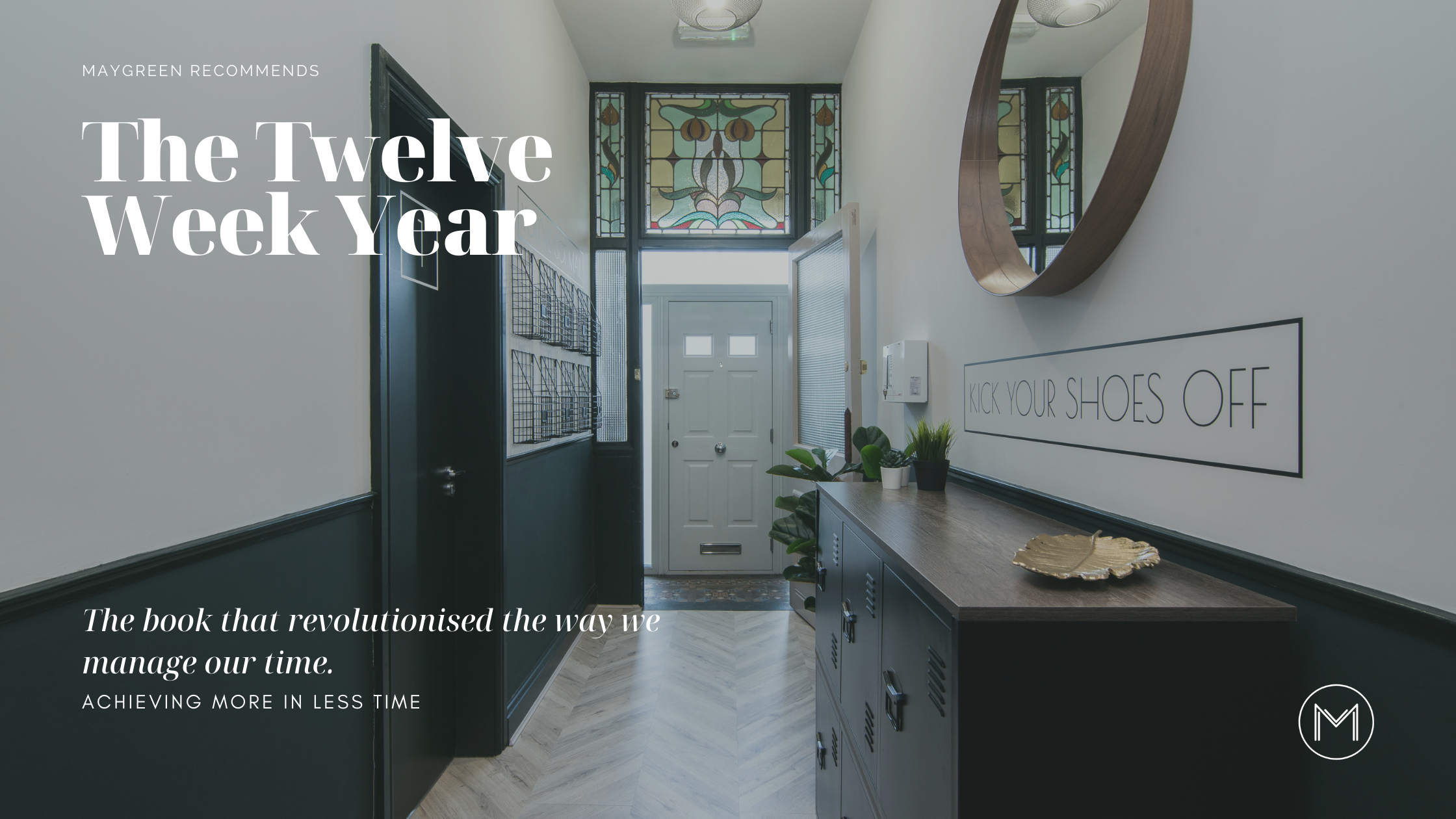This Book Has Changed Our Lives
You know you are on to a good book when you're only five pages in and already gripped! Do you ever feel as if a book is speaking directly to you? You hear yourself saying, “Yes, that's me”.
Mr H and I have both fallen back in love with reading this year and the new perspective and motivation a good book can bring to your life. The real power of a good book comes not from the reading but the execution of the knowledge you’ve learnt.
Some say knowledge is power but we believe, applied knowledge is power.
At the beginning of April, we sat down for our quarterly strategy meeting and implemented the lessons learnt in The 12 Week Year by Brian P Moran and Michael Lennington. After a month of consistently following the plan, I can’t believe the impact this book has had on our life.
Set Your Vision
We created a clear, strategic 12 week plan, reorganised our entire calendar and in the process of doing so reinvigorated our vision and connected us back to our WHY.
As part of the 12 week plan, we set 3 main goals, each with 4-6 tactics that if implemented consistently would allow us to hit those goals. The goals and tactics were specific, measurable and time based.
For example, secure two supported living deals (goal), send out 10 direct to vendor letters per week (tactic).
We track our performance on a weekly scorecard, review the plan and confirm any tweaks on a weekly basis. There's no hiding at the end of the week. It's black and white whether or not we’ve each achieved our tactics.
Diary Management
The biggest change has been to our diary. We've adjusted our weekly structure based on the ideas of The 12 Week Year. It’s centered around the following three types of block work:
1. Strategic block: 3 hours of uninterrupted, high-value, goal driven work (deal sourcing).
2. Buffer block: deal with unplanned and low-value activities (email, voicemails)
3. Breakout block: 3 hours spent on things other than work but within normal business hours that will refresh and reinvigorate your mind (Golf for Mr H, Pilates for Mrs H).
The point of this is to create a picture of a highly productive week - your ideal work week. The book says,
It’s crucial that you construct a week that works on paper before trying to execute it. If you can’t get it to work on paper, then there is no way it will work in actual practice.
After implementing this idea, we have already seen a huge shift in our productivity levels and a reduction in stress because all work (both high and low value) has a designated time and place within the calendar.
I hope this has given you some food for thought about your work week and whether it needs a bit of a shake up to help bring greater productivity and motivation to reach your goals.
Is there a book you’ve read recently and loved but didn’t implement the lessons learnt? Maybe now is the time to start executing what you’ve learnt!

